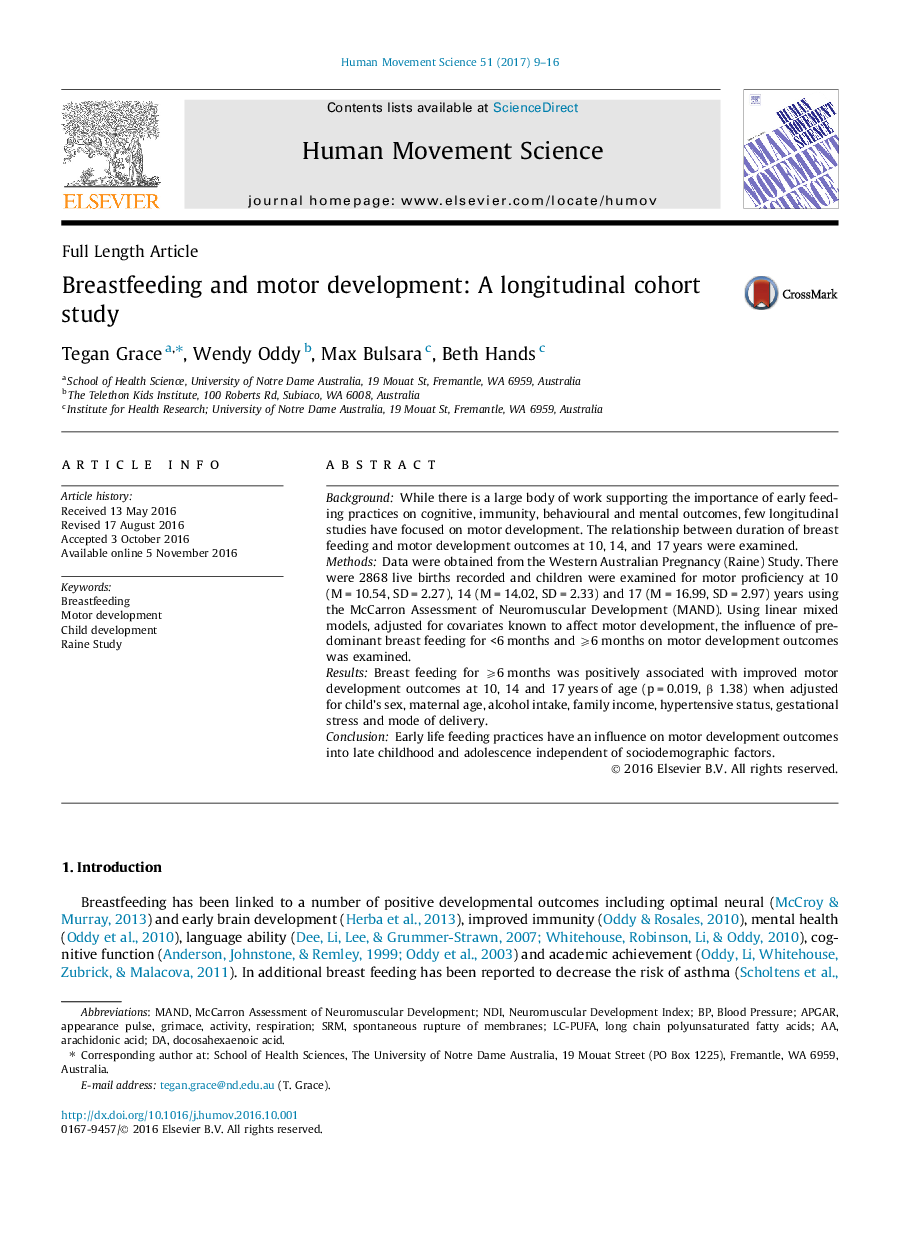| Article ID | Journal | Published Year | Pages | File Type |
|---|---|---|---|---|
| 5042017 | Human Movement Science | 2017 | 8 Pages |
BackgroundWhile there is a large body of work supporting the importance of early feeding practices on cognitive, immunity, behavioural and mental outcomes, few longitudinal studies have focused on motor development. The relationship between duration of breast feeding and motor development outcomes at 10, 14, and 17 years were examined.MethodsData were obtained from the Western Australian Pregnancy (Raine) Study. There were 2868 live births recorded and children were examined for motor proficiency at 10 (M = 10.54, SD = 2.27), 14 (M = 14.02, SD = 2.33) and 17 (M = 16.99, SD = 2.97) years using the McCarron Assessment of Neuromuscular Development (MAND). Using linear mixed models, adjusted for covariates known to affect motor development, the influence of predominant breast feeding for <6 months and ⩾6 months on motor development outcomes was examined.ResultsBreast feeding for ⩾6 months was positively associated with improved motor development outcomes at 10, 14 and 17 years of age (p = 0.019, β 1.38) when adjusted for child's sex, maternal age, alcohol intake, family income, hypertensive status, gestational stress and mode of delivery.ConclusionEarly life feeding practices have an influence on motor development outcomes into late childhood and adolescence independent of sociodemographic factors.
